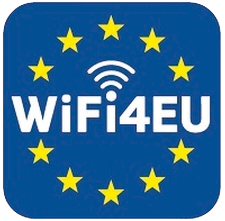Staying connected
EU subscribers can use their mobile phones while travelling in the EU just as they would at home, without paying any extra charges. In 2022, the ‘Roam-like-at-home’ rules, which also apply in Iceland, Liechtenstein and Norway, were extended for another 10 years. If you plan to stay in another EU country for a few months, you may want to check your operator’s fair use policy.
You can also enjoy your online subscriptions to films, sports events, e-books, video games and music services without any extra charges or restrictions.

Free internet access is more widely available thanks to EU-funded Wi-Fi hotspots that have been set up in thousands of local communities across Europe. You can connect for free in libraries, squares, parks and museums and other public areas where you see the WiFi4EU symbol.
Postage stamps can only be used in the country in which you buy them.
Nearly all EU countries have two-pin plugs, apart from Cyprus, Ireland and Malta, which have three-pin plugs. Make sure to pack an adapter when visiting these countries.
Single European emergency number: 112
To contact the emergency services in any EU country from any phone, fixed or mobile, dial 112, free of charge. Emergency assistance is also available directly from your vehicle via the eCall system.
Report any theft to the local police. You will need to enclose the police report when making your insurance or compensation claim. If your passport or ID card has been stolen, report it to your country’s consulate or embassy and to the police.
If you are outside the EU and need assistance, you can seek help from the embassy or consulate of any other EU country if yours is not represented.






